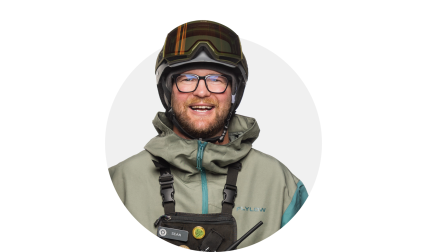Why did you decide to focus on condors in your forthcoming book, The Book of Birds: A Memoir of Extinction?
Throughout my career my books have been about conservation and the politics around conservation. My work in the Fuegian Archipelago, the islands at the bottom of South America, was about the beavers that the government introduced there from Canada in the 1940s to start a fur trade—and what animals are considered killable and why and by whom. The beavers became an invasive species and transformed every river system in what’s considered one of the most remote wildernesses in the world. After that, I wanted to write a more hopeful book. The California condor story is a rare success story of bringing back a species from near extinction. It’s a beloved species, an icon of California and its wilderness. At one point, there were only 14 birds left living in the wild.
Why do you call it a memoir?
My father was part of the team of scientists who brought the last wild condors into captivity, and part of it is written from my dad’s fieldwork notes from the 1980s. In some ways I inherited this legacy. I’m interested in the ethical questions about our obligations in this world to other species.
When you worked on your books about the Florida Everglades did you have close encounters with alligators?
I had a lot of contact with alligators. Both my parents worked there, and I did fieldwork there for 15 years. One of the problems happening in the Everglades is all the introduced pythons, these 16-foot snakes. I began thinking about my own feelings, just wanting them all to be annihilated. That’s when I began asking what kind of life is killable and whether these categories of invasives are even helpful in a world that’s always changing.
Why do you have mixed feelings about conservation efforts?
While saving the California condor has been an inspiration to millions of people, part of this book project is about the ambivalence of going to all the trouble and expense to conserve a species when we are living in a time when the rate of extinction is unprecedented. The question for me is whether this is what we should be doing—saving individual, charismatic species—when the rest of the world is burning. I don’t know the answer to that. For me, it’s to write into that gray area and bear witness to the kinds of losses we are living with and what actually constitutes a win.





